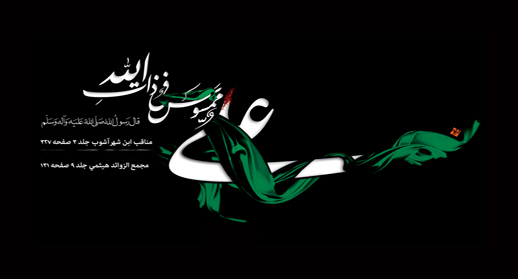
On the 19th of Ramadan month (Mah-e-Ramazan) of the year 40 A.H, Imam Ali came to the mosque in Kufa for his morning prayers. Imam Ali (pbuh) gave the call for prayer (Azaan) and became engaged in leading the congregation. Abd-al-Rahman ibn Muljam pretending to pray, stood just behind Imam Ali (pbuh), and when Imam Ali (pbuh) was in a state of prostration, Abd-al-Rahman ibn Muljam dealt a heavy stroke with his sword, inflicting a deep wound on Imam Ali’s (pbuh) head.
The Holy Prophet (pbuh) had prophesied the assassination of Imam Ali (pbuh) and his issues. Regarding Imam Ali (pbuh) he (pbuh) had said, "O Ali! I see before my eyes thy beard dyed with the blood of thy forehead."
May joy be to Amir al-Muminin Imam Ali bin Abi Talib (pbuh) and a blessed afterlife!
The crime of assassinating Imam Ali (pbuh) remains one of the most cruel, brutal and hideous, because it was not committed against one man, but against the whole rational Islamic leadership.
Imam Ali (pbuh) suffered from his wound for three days, and He (pbuh) passed away on 21st of the month of Ramadan (Mah-e-Ramazan) at an age of 63 years.
During these three days, he (pbuh) entrusted his son, Imam Hassan (pbuh) with the Imamate of guiding the nation ideologically and socially. During those three days, as during all his life, he never ceased remembering Allah, praising Him, and accepting Him and His ordinance.
Likewise, he continued giving pieces of advice and directions leading to good, pointing to the right, defining the way to guidance, explaining the course for deliverance, calling for the observance of Allah’s ordinances, and warning against following one’s ill desires and set-backs from not carrying out the divine message.
Such was the heroic end of this great man! The loss to the Mission and the nation was the gravest after the loss of the Holy Prophet (pbuh).
By the death of Imam Ali (pbuh) the nation lost:
A heroism that had become the song of the time;
A courageous history that has never dreamt of its like;
A wisdom no one can fathom, save Allah;
A purity, the like of which was only in the prophets;
An abstinence from the pleasures of life that could be attained only by the nearest to Allah;
An eloquence such as to be the echo of Book; and
A jurisprudence, and a thorough knowledge of the laws of religion, that made him the "gateway of the city" of the Prophet"s knowledge, and the authority to whom the Islamic nation referred in all its affairs.
Peace be upon Amir al-Muminin the day he was born, the day he was martyred on his altar, and the day he shall be raised alive.
Praise be to Allah, Lord of the worlds.
